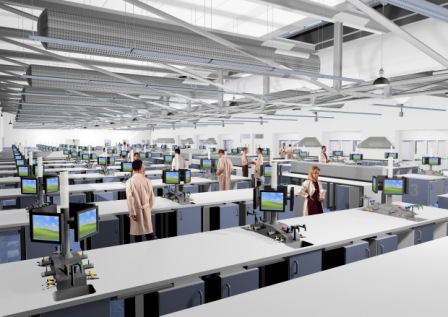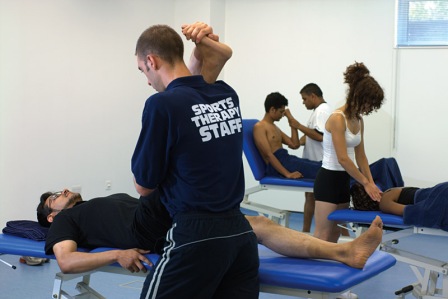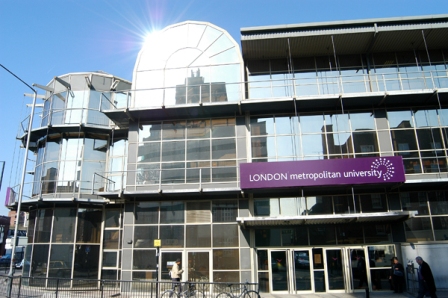International Office
Tel
No: 020 7423 0000
Email: Website:
London Metropolitan University
London North Campus
166-220, Holloway Road
London, N7 8DB
United Kingdom
Study Science in the United KingdomScience 'superlab' opens at London Met United KingdomThis first-class teaching and research facility features a 'superlab' with 280 workstations sharing both traditional and digital technology. This is the first university laboratory in the world to allow 280 students to work independently on different experiments, and the largest of its kind in Europe.
In addition, the impressive 8, 000m2 building houses an international standard basketball court set within a multipurpose gymnasium; specialist laboratories for tissue culture research and microbiology; a nuclear-magnetic resonance room; and a Category 3 laboratory suite for research on airborne or transferable viruses. The Science centre also features unique facilities for the study of sports therapy, nutritional physiology and food technology including rehabilitation and physiotherapy rooms, phlebotomy labs, a cybex room (where muscle power can be measured), a body pod (which measures body fat) and a motor room (where movement can be observed).
London Met is the largest single university in London and offers a wide
range of science courses at both undergraduate and post graduate levels.
Vice-Chancellor and Chief Executive Brian Roper says: 'London Met has
chosen to make a substantial investment in science at a time when many
other institutions are withdrawing from this important area of study. A
decline in the study of science would have serious implications for United Kingdom's
economic future and we are working to combat this.'
Professor Chris Branford-White, Director of the Institute of Health and
Research Policy (IHRP) says: 'This state-of-the-art facility will
further strengthen the teaching and research of science at London Met.
In particular, the new building provides excellent Category 3 laboratory
facilities for IHRP staff to develop research on airborne and
transferable viruses.'
Request Information:
|
| |||||||||||||||||||||





